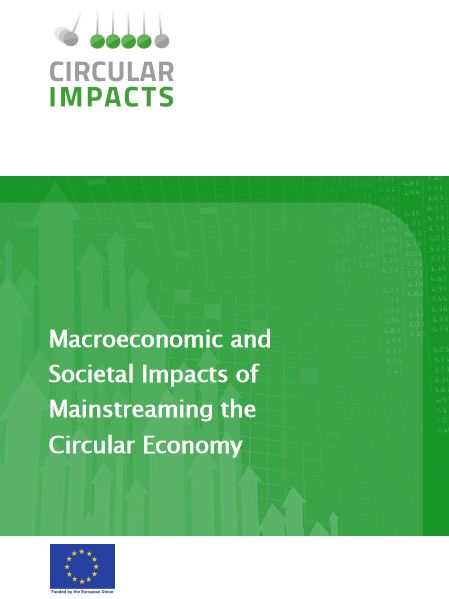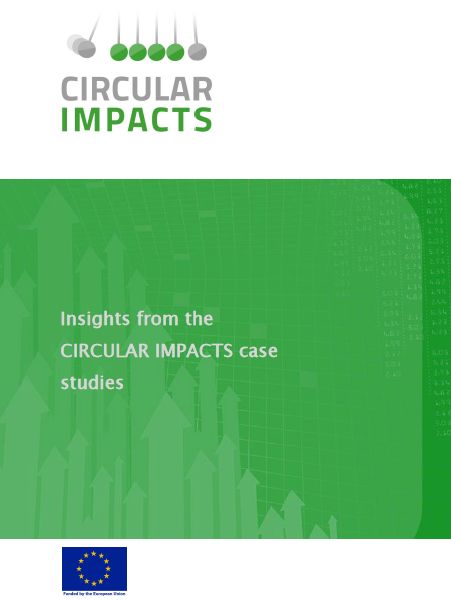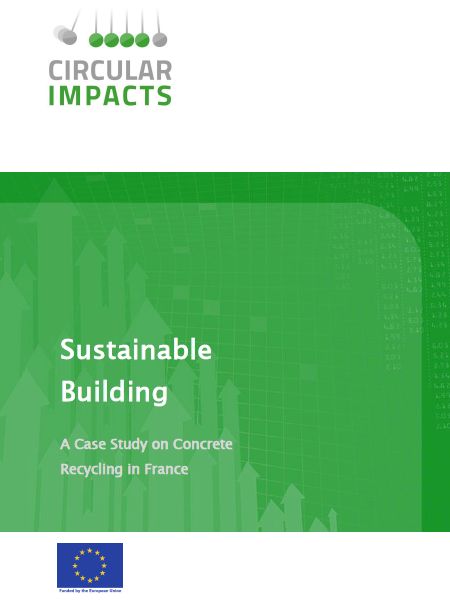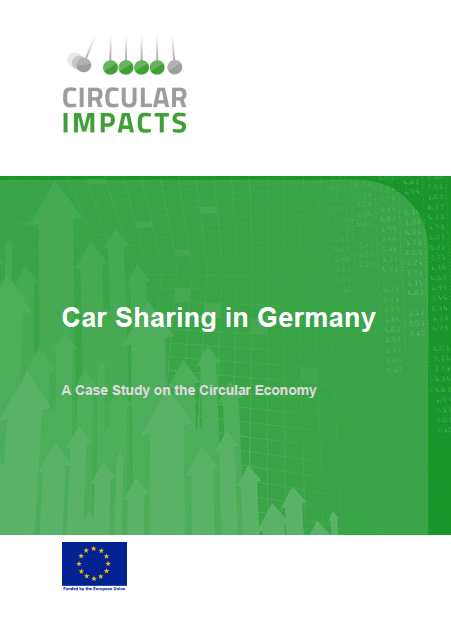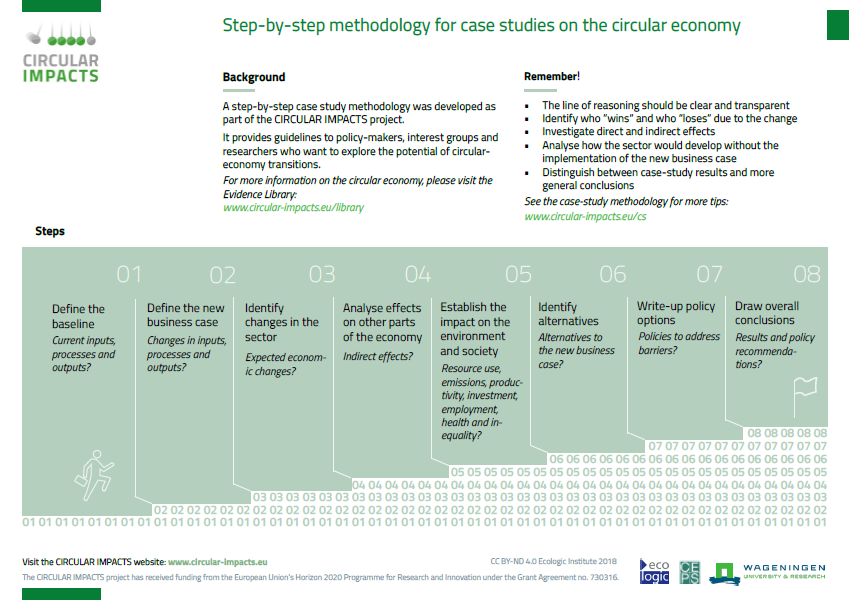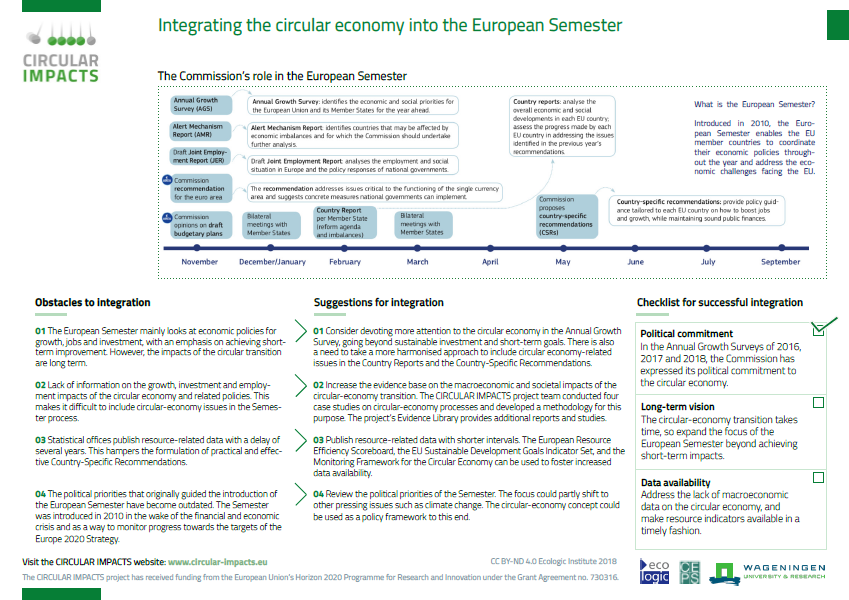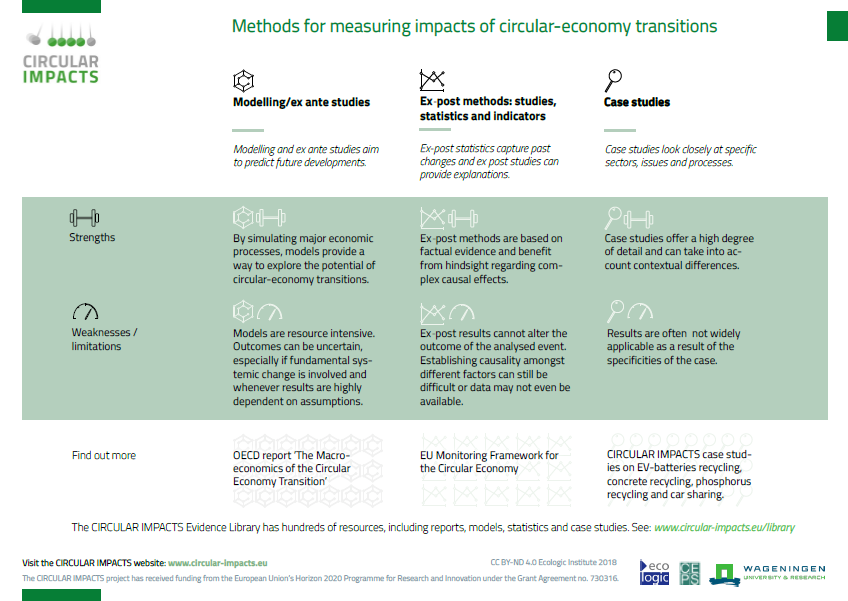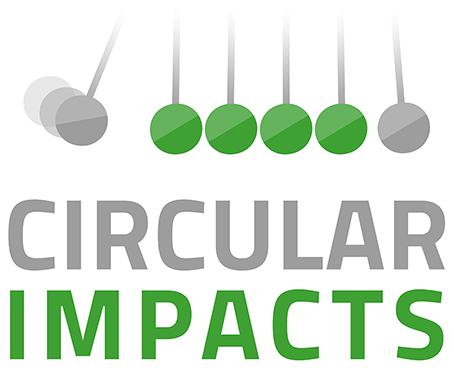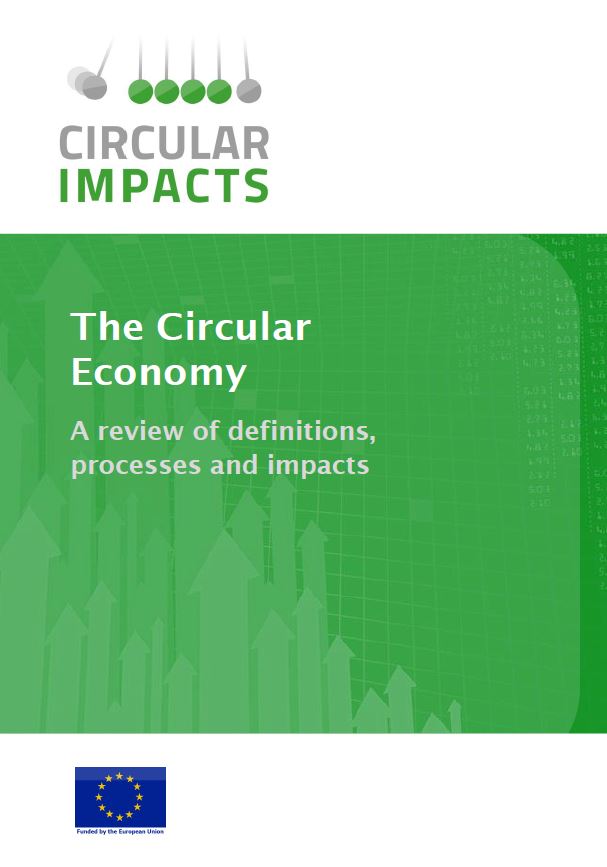
Impacts of the Circular Economy Transition in Europe – CIRCULAR IMPACTS Final Conference
- Event
- Date
-
- Location
- Brussels, Belgium
The conference 'Impacts of the circular economy transition in Europe' took place in Brussels on 5 September 2018, organised as part of the CIRCULAR IMPACTS project. Around 150 people attended the event, including officials from the European Commission, national ministries, the public sector, industry, and NGOs.
Ecologic Institute, as project lead, and the CIRCULAR IMPACTS project partners presented their findings on the impacts of moving towards a more circular economy in Europe, one that uses resources efficiently and maintains the economic value of materials. In addition to discussing their insights regarding the policy frameworks necessary for fostering a resource-efficient economy, team members presented evidence on the impacts and potential benefits of moving towards circular-economy approaches in three sectors: electric-vehicle batteries, car sharing, and building materials.
Aaron Best, project coordinator for CIRCULAR IMPACTS, stated that "CIRCULAR IMPACTS has improved our understanding of how to foster a more circular economy in Europe and provided a useful evidence base for others working to analyse this transition."
Scenario analysis and macroeconomic modelling are important tools for considering the potential impacts of circular-economy transitions. Showcasing what is involved in such an effort, the OECD presented its ambitious RE-CIRCLE project, which is now analysing the potential global impacts of circular-economy transition scenarios. Presenters and participants highlighted the complexity of assessing such impacts, and reflected on the challenge of channelling EU ambitions for a circular economy into effective policy and tangible results. The CIRCULAR IMPACTS project provided some clarity on this matter by examining how to better integrate the circular economy into the European Semester, the EU’s annual cycle of macroeconomic policy coordination.
The CIRCULAR IMPACTS project started in October 2016 and concludes in September 2018.




